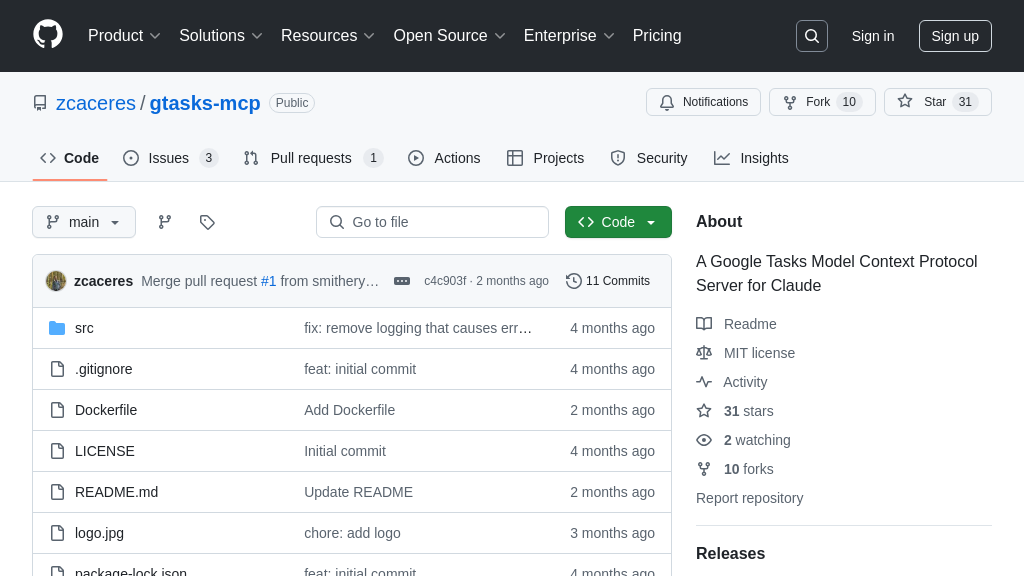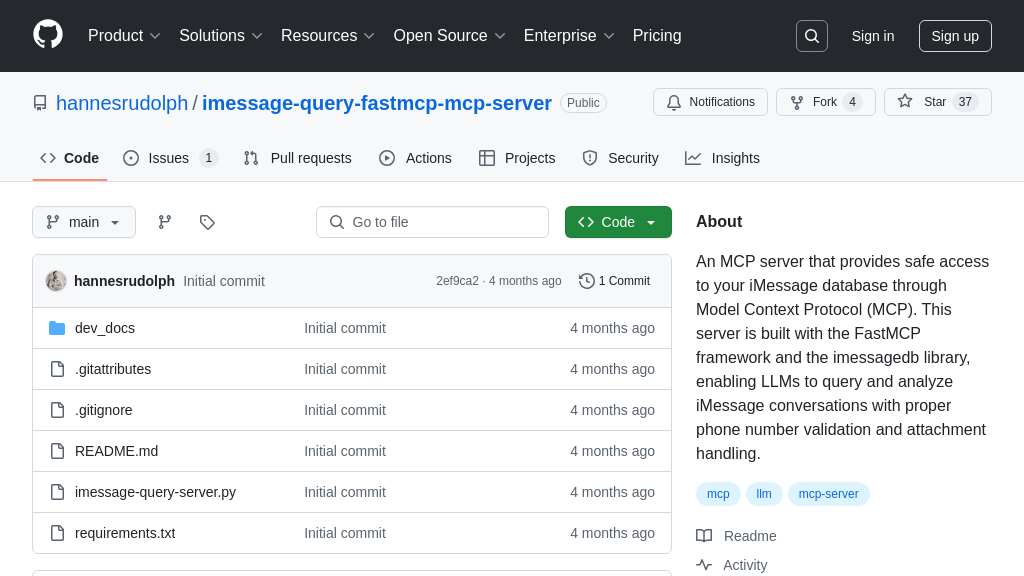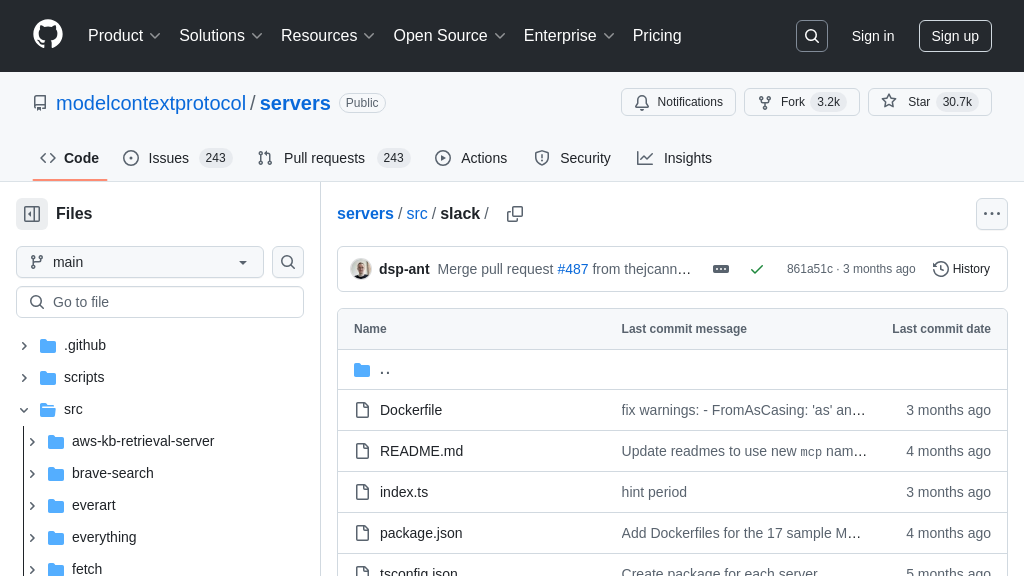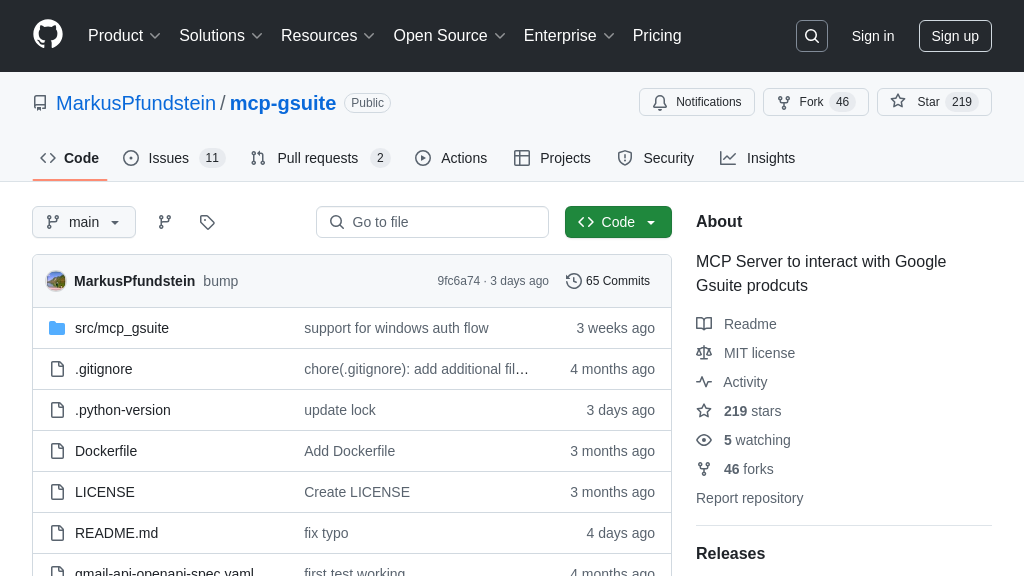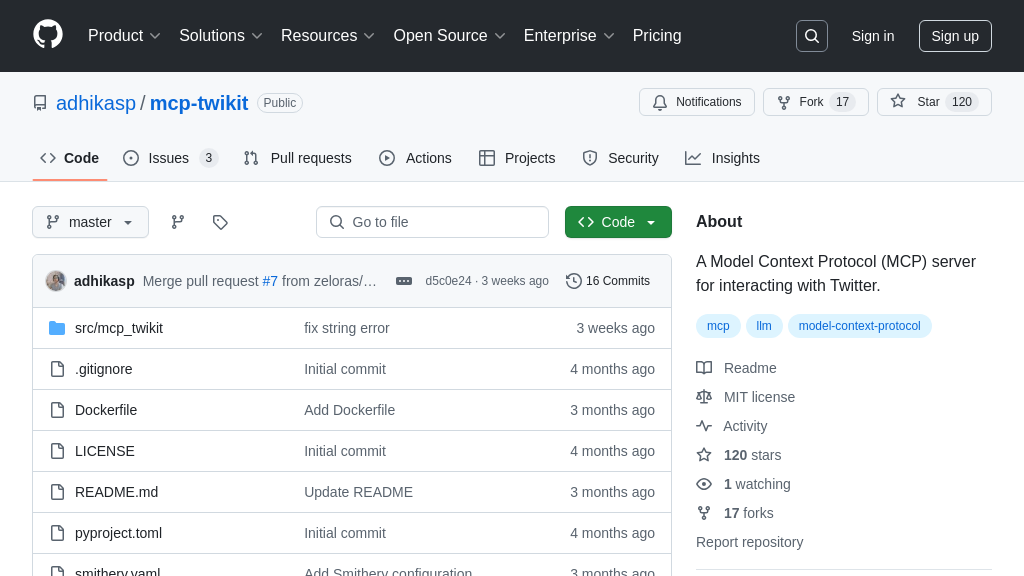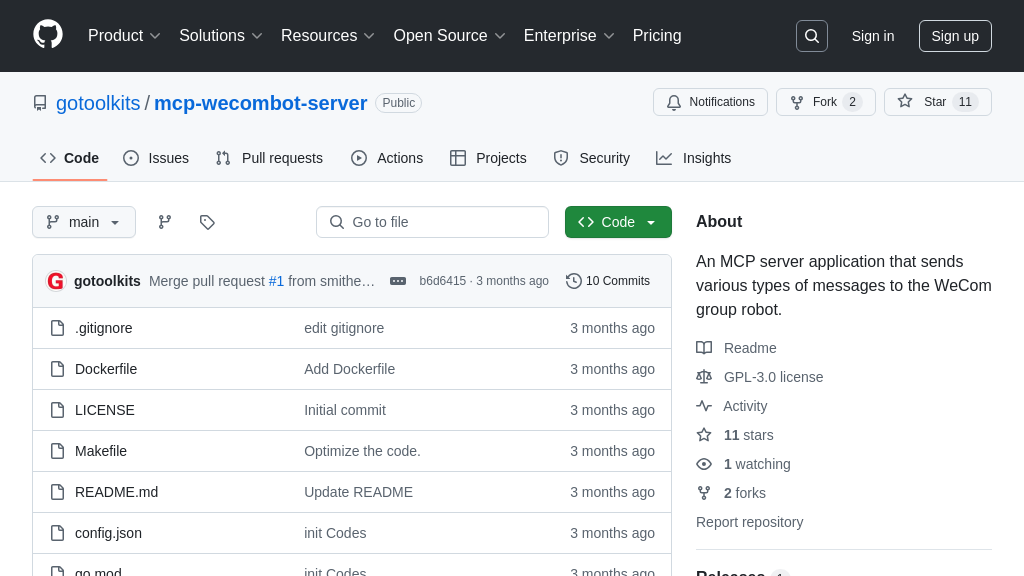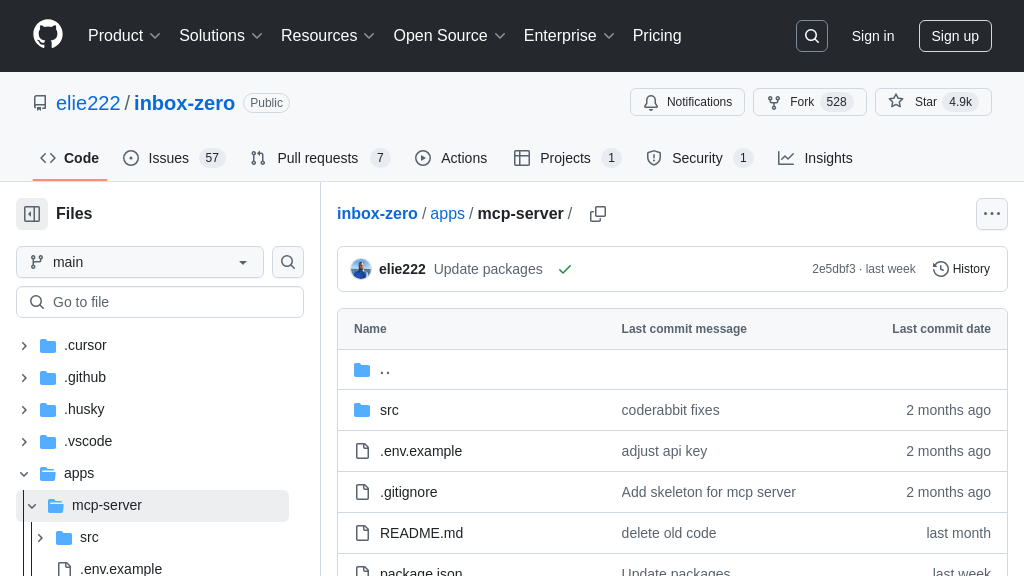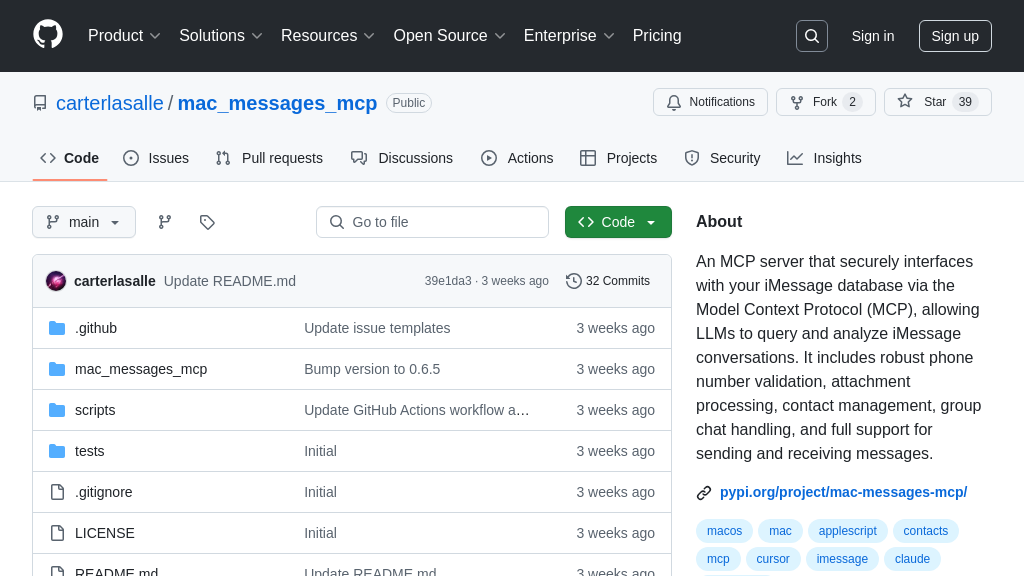whatsapp-mcp
Integrate WhatsApp with AI using the WhatsApp MCP Server. Search messages, manage contacts, and send messages via AI agents.
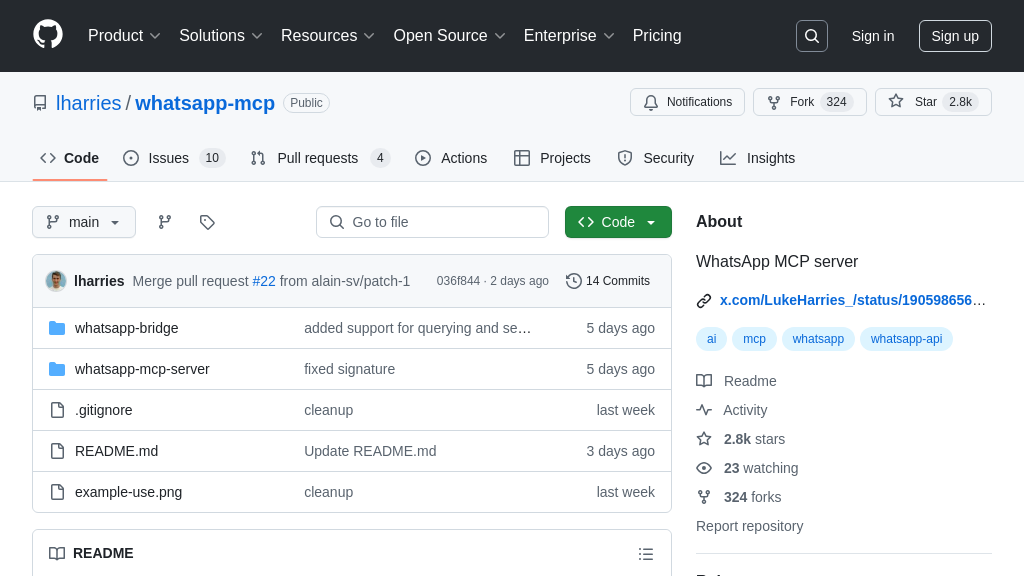
whatsapp-mcp Solution Overview
The WhatsApp MCP server is a powerful tool that enables AI models to interact directly with WhatsApp. As an MCP server, it allows AI agents to access and manipulate WhatsApp data, effectively bridging the gap between conversational AI and personal communication. Key features include the ability to search messages and contacts, retrieve chat history, and send messages to individuals or groups, all through an AI interface.
This solution addresses the developer need for seamless integration between AI and WhatsApp, opening doors to applications like AI-powered personal assistants, automated customer support, and intelligent information retrieval. It leverages a Go-based WhatsApp bridge for API communication and a Python MCP server for standardized interaction, ensuring secure and local data handling. By connecting to the WhatsApp web multi-device API, it provides a robust and versatile platform for AI-driven WhatsApp interactions. The core value lies in its ability to bring the power of AI to your WhatsApp conversations, enhancing productivity and unlocking new possibilities.
whatsapp-mcp Key Capabilities
WhatsApp Message Search
The whatsapp-mcp allows AI models to search through a user's WhatsApp message history. This functionality is enabled by storing all messages locally in a SQLite database. When the AI agent needs to access the messages, it queries this database through the MCP server. The search functionality supports filtering messages based on various criteria, such as keywords, contacts, or date ranges, enabling the AI to retrieve relevant information efficiently. This feature enhances the AI's ability to provide contextually relevant responses and insights based on past conversations.
For example, a user could ask Claude, "What did I discuss with John about the project deadline last month?". The AI would use the search_messages tool to query the SQLite database for messages exchanged with John containing the keywords "project" and "deadline" within the specified time frame. The AI can then summarize the relevant information and provide a concise answer to the user. The Go bridge maintains the SQLite database by accessing the WhatsApp API.
Contact Information Retrieval
The solution provides tools for AI models to retrieve contact information from a user's WhatsApp account. This includes the ability to search for contacts by name or phone number using the search_contacts tool. The retrieved contact information can then be used by the AI to personalize interactions, identify conversation participants, or perform other contact-related tasks. This feature enhances the AI's understanding of the user's social network and communication patterns.
For instance, if a user asks, "Who is +1-555-123-4567?", the AI can use the search_contacts tool to identify the contact associated with that phone number. The AI can then provide the user with the contact's name and other available information. The Go application interacts with the WhatsApp web API to keep the contact information up to date.
Sending WhatsApp Messages
whatsapp-mcp enables AI models to send WhatsApp messages to individuals or groups. This functionality is exposed through the send_message tool, which allows the AI to compose and send messages on behalf of the user. The AI can use this feature to automate tasks such as sending reminders, sharing information, or initiating conversations. This feature extends the AI's capabilities beyond information retrieval and allows it to actively participate in communication.
For example, an AI assistant could be configured to send a daily reminder to a user's WhatsApp group about an upcoming meeting. The AI would use the send_message tool to send a pre-defined message to the specified group at a scheduled time. The request flows from the AI through the MCP server to the Go bridge and finally to WhatsApp.
Technical Implementation
The whatsapp-mcp solution is built upon a client-server architecture, comprising a Go-based WhatsApp bridge and a Python-based MCP server. The Go bridge handles the authentication with WhatsApp's web API, manages the local SQLite database for storing messages and contacts, and provides an interface for the Python MCP server to access WhatsApp data. The Python MCP server implements the Model Context Protocol (MCP), exposing a set of tools that AI models can use to interact with WhatsApp. This separation of concerns allows for efficient data management and standardized communication between the AI model and WhatsApp. The use of SQLite ensures local data storage, addressing privacy concerns.
